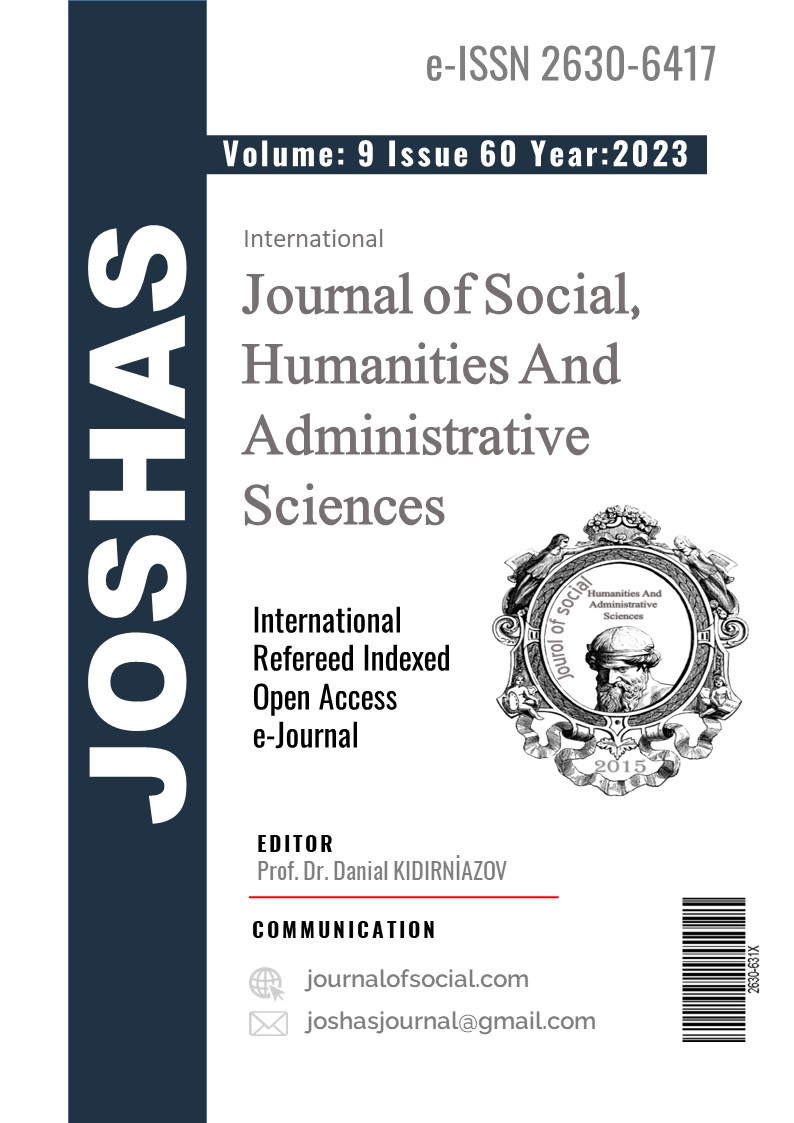Author :
Abstract
Bu çalışma ilkokul 4. Sınıf öğrencilerinin okuma güçlüklerinin akran eğitimi yoluyla giderilmesi amacı ile gerçekleştirilmiştir. Çalışma 2022-2023 eğitim öğretim yılı içerisinde Afyonkarahisar ili Çobanlar ilçesi Çobanlar 15 Temmuz Şehitleri İlkokulu’na devam eden ve okuma güçlüğü çeken 4. Sınıf öğrencileri öğrenen akran Eslem ve öğreten akran Hatice ile yapılmıştır (etik nedenlerden dolayı gerçek isimleri kullanılmamıştır). Öğrenciler çalışma grubu tespit sonuçlarına göre belirlenmiş ve veli izinleri alınarak çalışmaya dahil edilmişlerdir. Nitel araştırma yönteminin kullanıldığı çalışmanın deseni eylem araştırmasıdır. Araştırma esnasında öyküleyici betimleyici ve şiir gibi farklı metin türleri kullanılmış ve sonuçlar metin türlerine göre de analiz edilmiştir. Veriler gözlem ve görüşme yöntemleri ile toplanmıştır. Öğrencilerin okuma (doğru, akıcı okuma ve prozodi) , okuduğunu anlama düzeyi, yanlış analizi envanteri ve Prozodik okuma ölçeği kullanılarak belirlenmiştir. Yine öğrencilerle ve velileriyle yapılan görüşmeler, uygulama esnasında alınan notlar ve tutulan araştırma günlükleriyle de veriler toplanmıştır. Veri analizleri içerik analizi yöntemiyle analiz edilmiştir. Aileler ve öğrenciler ile görüşmeler yapılmıştır. Bu görüşmeler esnasında görüşme yapılan kişinin ortamdan etkilenmemesi için gerekli tedbirler alınmıştır. Veri kaybını engellemek için kişilerin onayı alınarak görüşmelerde ses kaydı yapılmıştır. Elde edilen uygulama sonuçlarına göre akran eğitimi yönteminin okuma güçlüğü çeken öğrencinin okuma ve okuduğunu anlama becerilerini arttığı tespit edilmiştir. Yapılan aile ve öğrenci görüşmeleri, araştırma esnasında alınan alan notları ve araştırma günlükleri de meydana gelen artışı desteklemektedir.
Keywords
Abstract
This study was carried out with the aim of eliminating the reading difficulties of primary school 4th grade students through peer education. The study was conducted with the peer Eslem and the peer tutor Hatice, who attended the Çobanlar 15 July Martyrs Primary School in Afyonkarahisar province Çobanlar district and had reading difficulties in the 2022-2023 academic year (for ethical reasons, their real names were not used). The students were determined according to the results of the study group determination and were included in the study with the permission of their parents. The pattern of the study, in which the qualitative research method was used, is action research. During the research, different text types such as narrative, descriptive and poetry were used and the results were analyzed according to text types. Data were collected by observation and interview methods. Students' reading (correct, fluent reading and prosody), reading comprehension level were determined by using the error analysis inventory and the Prosodic reading scale. Again, data were collected through interviews with students and their parents, notes taken during the application and research diaries kept. Data analyzes were analyzed by content analysis method. Interviews were held with families and students. During these interviews, necessary precautions were taken to prevent the interviewee from being affected by the environment. In order to prevent data loss, voice recordings were made during the interviews with the consent of the individuals. According to the results of the application, it was determined that the peer education method increased the reading and reading comprehension skills of the students with reading difficulties. Family and student interviews, field notes taken during the research and research diaries also support the increase.





